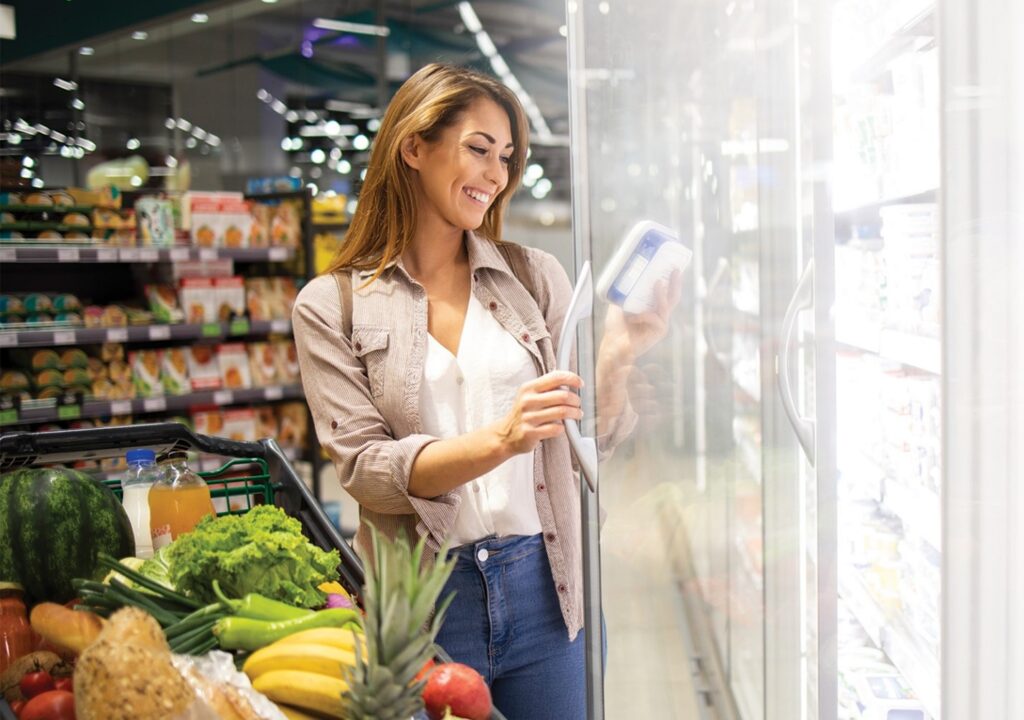Despite accounting for nearly 9.5% of Egypt’s non-oil exports in fiscal year 2021/2022, Central Bank data shows that food brought in more revenue than other non-oil products. Food exports range from raw materials to semi-finished goods and finished products, including fresh, chilled and frozen vegetables, fats, greases, oils, and dairy products.
The government is supporting local private-sector producers and traders to boost exports. Karim Abu Ghali, a member of the Food Export Council, told Al Ahram English in March, “There is a clear political will to support the export sector.”
However, local efforts alone may not be enough. A case in point is food safety regulations in destination countries. Experts say developed nations, in particular, use those laws to protect citizens from poor-quality food and fulfill political agendas. “The global food trade is a diverse and complex operation, and one in which most countries strive to take part,” Mary Kenny of the U.N. Food and Agriculture Organization (FAO) Food Quality and Standards Service wrote on the FAO’s website. “Governments recognize that a strong national food industry is … a significant contributor to food security. They also view food exports as an important source of foreign exchange.”
Shifting demands
A 2009 report from the Asian Development Bank (ADB) found “a structural change in the composition of agriculture trade in developing nations over the past three decades.”
That was evident in a noticeable shift in demand from unprocessed “traditional” foods to processed variants. “Developed … markets have been a major destination of processed food exports from many developing countries,” noted the ADB report.
That was accompanied by rising demand for imported fresh produce in developed countries, as local supplies couldn’t meet consumer demand. “The volume of global fresh fruit and vegetable trade has grown more than that of any other major category of agricultural products,” according to a U.N. Conference on Trade and Development (UNCTAD) report.
Another significant change the UNCTAD report saw in developed nations was greater demand for year-round availability, greater diversity of food, and increased health considerations. “That has resulted in growing markets for off-season produce, exotic fruits and vegetables, and organic produce.”
Diversification meant “many poor farmers in developing countries [could] earn … higher incomes.” Accordingly, governments in developing nations shifted their agriculture strategy to focus on high-revenue export crops.
Increased demand for imported foods and produce resulted in governments establishing food safety regulations rather than leaving it to individual companies. “International trading in food formally took place with little government intervention and it was accepted that … food producers set their own standards,” said the FAO report. “However, some dishonest food traders found unregulated markets gave them an excellent opportunity to exploit consumers.”
While countries have different food safety standards, in 1995 the World Trade Organization announced the Agreement on the Application of Sanitary and Phytosanitary Measures (SPS), which uses Codex Alimentarius Commission regulations “as the reference point for [food safety] standards.”
“SPS has become a more important issue since the demand for a more stringent SPS in developed countries tends to increase following their rising incomes and growing health consciousness,” said the ADB report.

Unintended consequences
One of the biggest fallouts of having the SPS agreement is it allowed governments to use food safety regulations to satisfy political goals. “Since SPS is less transparent than tariffs or quotas … there is ample room for developed countries to tweak the standards to be stronger than necessary … to make their own products competitive with imports,” said the ADB report.
In an August research paper, Mohammad Ishaq, a social sciences expert with the Pakistan Agricultural Research Council, a government body, said that some governments use SPS and other food safety regulations as a barrier to trade that could” counterbalance … tariff reductions.”
Increasingly stringent food safety laws also mean that “export-oriented [foods and vegetables] are generally more costly to [grow] per hectare than traditional crops, requiring most growers to seek credit to finance their production,” UNCTAD said. That is troublesome in developing nations, where most farmers are classified as small and poor, meaning most “lack access to such credit.”
“Even when comparable food safety measures are applied in developed countries … based on genuine health reasons, they tend to impede imports only from developing countries,” said the ADB report.
The UNCTAD report highlighted the increasing need to trace fresh and processed foods exported to developed nations. That means extra financial and digital infrastructure costs for small farmers and governments in developing countries.
The report also pointed to many requirements that ensure farmers in developing countries grow food using sustainable and eco-friendly methods, the report said. “In addition to government regulations, private sector standards [by associations and industry bodies] are playing an increasingly important role in the marketplace.”
The upside
Ensuring Egypt-based food exporters meet standards set by the country’s biggest food buyers may be challenging. However, it could prove predictable. “Although these standards are subject to frequent changes and often difficult and costly to meet, such changes are to be expected, given advances in scientific knowledge about health hazards and improvement in food processing technology.”
In addition to increasing food exports, the ADB said complying and anticipating those new standards “could improve [international] market performance by reducing transaction costs and trade friction as exporters use such standards as a guide.”
It could also raise barriers in food-importing countries, meaning less competition and more significant market shares. That means higher profit margins, as rising economies of scale reduce costs per unit. The ADB paper explained it “increases the elasticity of substitution between similar goods.” That means food exporters could focus on efficiency and quality rather than lowering costs to remain competitive.
The UNCTAD report also noted that ever more stringent food security requirements would help exporters improve their countries’ agriculture sector. “Compliance [with foreign food security laws] can offer benefits, such as better management of agrochemicals, enhanced occupational health and better food quality at the national level,” the report said. That can “transition to high-precision production methods.”
“The use of international standards … allows countries to prioritize the use of their often limited resources,” said Ishaq of the Pakistan Agricultural Research Council in his 2022 paper. It “concentrates on risk analysis and scientific investigations that may be specific to their own countries.”







